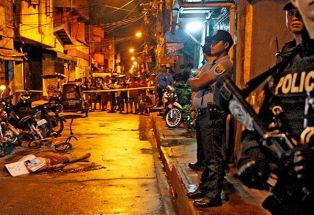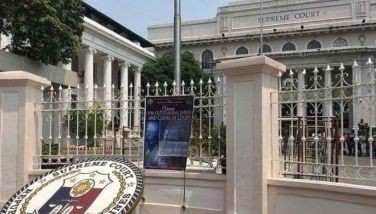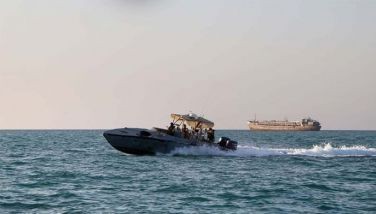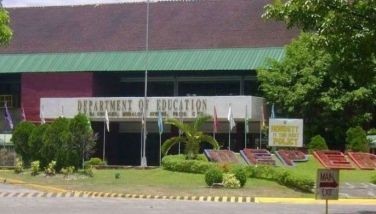Filipinos most disapproved of gov't pandemic response in Southeast Asia — survey
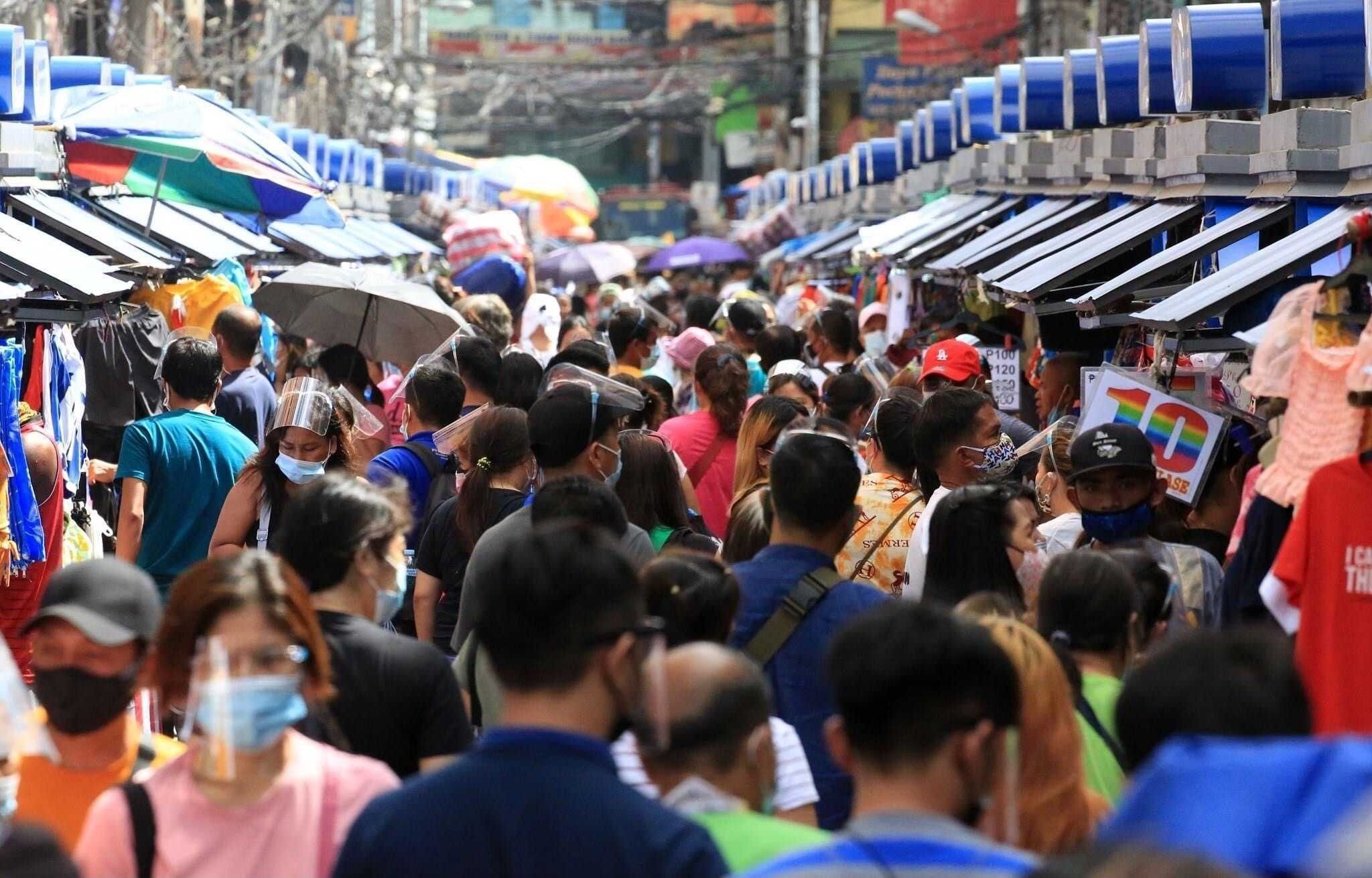
MANILA, Philippines (Updated Feb. 11, 7:31 a.m.) — Filipinos in the policy, research, business, civil society and media communities had the lowest approval rating for their government's response to the pandemic among Southeast Asian countries, a new online survey made public on Wednesday has found.
Findings by the Singapore-based ASEAN Studies Centre showed that a majority or 53.7% of its Filipino respondents—from a more specialized cohort than respondents in national surveys—thumbed down on the Duterte administration's handling of the health crisis at home, which has led to more than 541,000 infections and 11,401 deaths to date.
Of the figure, 17.9% said they "strongly disapprove," 20.9% were neutral, while only 25.4% were okay with government's response. Rounded up, that brings 19.4% approved and 6.0% strongly approved.
The Philippines has remained the region's second-worst hit by the pandemic. Its neighbor Indonesia which has the highest number of cases at 1.17 million and nearly 32,000 deaths, yielded a 50.4% disapproval against 24.1% approved and 25.6% neutral.
In contrast, Vietnam had the highest approval rating among its more specialized citizens at 96.6%, followed by Brunei at 93.9% and Singapore at 92.4%.
Hanoi and the city-state of Singapore had both earned praise for their coronavirus response, with only 2,070 cases and 35 deaths for the former and with 59,747 infections and 29 fatalities, according to the Johns Hopkins University and Medicine.
Bandar Seri Begawan, meanwhile, had so far reported a slim 182 cases and three deaths.
In the early stages of the pandemic in Southeast Asia, Singapore was actually close to Jakarta in the highest cases, with Manila then at third. But with authorities managing to keep it at nearly 60,000 at present, it seems that its handling has worked better than that of the two other countries.
The study had 1,032 specialized respondents from ten ASEAN member states with 6.5% coming from the Philippines, and was held from Nov. 18, 2020 to Jan. 10, 2021. Its margin of error was not stated.
Most of those who took part in it were from the academe, think tanks or research institutions at 45.4%, those from government at 30.7%, civil society, non-government organizations or media at 9.3%, business or finance at 9.2% and regional or international organizations at 5.3%.
Those between 21 to 35 years old made up most of the participants at 34.9%, individuals between 36 to 45 at 30.6%, those 46 to 60 at 23%, those above 60 at 9.3% and those under 21 at a measly 2.2%.
Where to improve?
An overwhelming majority of 72.2% from the country said there is a need to encourage more science and health experts "to contribute to public policy discussions" and for government to heed their advice.
Such an observation bears more weight especially since the Duterte administration has long been criticized for its militaristic approach to a health crisis, with the president putting retired military officials to lead the coronavirus task force, as well as deploying cops and soldiers to carry out pandemic-related curbs.
RELATED: 'Medical quarantine, not ECQ': Health professionals call for change in 'militaristic' lockdowns
Some 58.3% said the government should invest in early warning systems for future pandemic outbreaks, as well as for research and development for testing and vaccine development.
Officials have sought to claim that the administration had prioritized improving the country's testing capacity since the start of the pandemic, but the previous months have showed that screening efforts are still largely carried out by private-run laboratories.
But a lesson it has learned to carry out was establishing a virology research institute under the science and technology department, with a P284 million ($5.9 million) funding for this year.
Further in the report, 33.3% said better financial relief and subsidies should be offered to the millions economically affected by the pandemic. Some 30.6%, meanwhile, said officials should lead in following health protocols instead of flouting them, as is shown in a series of documented incidents by no less than the president's men and some lawmakers, and 5.6% said the measures should be better implemented in public.
RELATED: Whatever happened to: Quarantine violators in Philippine government
"These findings confirm that while ASEAN member governments have done relatively well in their public health response, they will need to do more to be better prepared in the long-term for future outbreaks," the report said.
Leadership, challenges in the pandemic
In total, 32.7% of the respondents said Singapore had provided the best leadership in the region during the course of the health crisis, followed by Vietnam at 31.1%.
Only 0.5% of all participants picked the Philippines for the said criteria, the lowest, with 6% being Filipinos and 0.6% from Myanmar.
The pandemic has also emerged as the top challenge respondents believe Southeast Asia is facing, followed by unemployment and economic recession and socio-economic gaps and rising income disparity.
For Filipinos, 80.6% agreed that the COVID-19 is the Number 1 challenge, followed by "more intense and frequent weather events" as a result of climate change at 59.7%, unemployment and the recession at 65.7%, along with increased military tensions such as in the South China Sea at 37.3% and 28.4% on widening socio-econimic gaps.
Only 3% of them answered terrorism, 11.9% on domestic political instability and 13.4% on the deterioration of human rights conditions.
"While it is not meant to present the definitive Southeast Asian view of current affairs, the survey acts as a barometer of the general attitudes and perceptions of interested stakeholders on important regional developments," the report added.
In January, an assessment by another independent think tank placed the Philippines at 79th place globally out of almost 100 nations in handling the coronavirus pandemic, making it one of the "underperformers" in Asia Pacific.
While health officials have said that they welcome such researchers on the health crisis, they said that the study had failed to grasp "the complex nature of pandemic response," and adding that "we can't be comparing apples to oranges."
The Philippines is nearing a year into its community quarantine first set in March 2020 to become the world's longest. And while President Rodrigo Duterte had put his faith on the vaccines for an end to the health crisis, his administration's bid to secure the jabs had met various roadblocks along the way.
Editor's Note: The earlier version did not immediately mention profiles of the respondents, who are from specific fields or industries, namely policy, research, business, civil society and media. This has been clarified in the update.
- Latest
- Trending


















